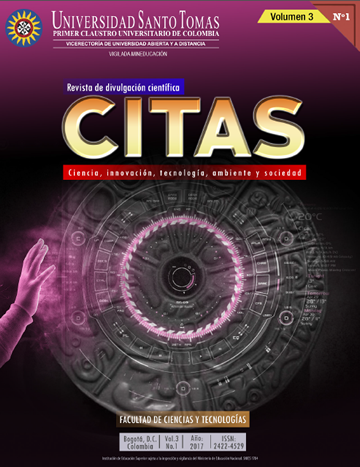La batalla entre consumismo y el medio ambiente. Una responsabilidad de todos
The battle between consumerism and environment. Everyone’s responsibility
Abstract (en)
Every time we are confronted with consuming multiple products and services, regardless of the damage that has clearly not having the fundamental maxims that must be taken into account to avoid creating more pollution to the planet. One theory that has gained momentum is the Sustainability Supply Chain Management, SSCO, which configured with processes management chain green supply, contribute to reducing the environmental impact and improve service-level agreement of organizations.Abstract (es)
References
Consumiami (2012). Formación y entretenimiento en el consumo responsable. Recuperado de: http://www.mercadodedinero. com.co/Consumo/consumiami-2012-formacion-y-entretenimiento-en-el-consumo-responsable.html
Hernández, M. (2009). Carrefour sustituye sus bolsas de plástico. El Mundo Recuperado de: http://www.elmundo.es/mundodinero/2009/09/01/economia/1251800623.html
Nieto, E. (2010). Soy ECO colombiano, campaña para promover la conciencia ambiental del país. Gestión estratégica para las Organizaciones sociales. Recuperado de: http://www.gestrategica.org/templates/noticias_detalle.php?id=250
Ntabe, E. N., LeBel, L., Munson, A. D., & Santa-Eulalia, L. A. (2015). A systematic literature review of the supply chain operations reference (SCOR) model application with special attention to environmental issues. International Journal of Production Economics, 169, 310–332. https://doi. org/10.1016/j.ijpe.2015.08.008
Signori,Flint, G. (2015). Toward sustainable supply chain orientation (SSCO): mapping managerial perspectives. International Journal of Physical Distribution & Logistics Management, 45(6), 536–564.
Ntabe, E. N., LeBel, L., Munson, A. D., & Santa-Eulalia, L. A. (2015). A systematic literature review of the supply chain operations reference (SCOR) model application with special attention to environmental issues. International Journal of Production Economics, 169, 310–332. https://doi. org/10.1016/j.ijpe.2015.08.008
Signori,Flint, G. (2015). Toward sustainable supply chain orientation (SSCO): mapping managerial perspectives. International Journal of Physical Distribution & Logistics Management, 45(6), 536–564.
How to Cite
License
The authors sign a transfer of rights so that Universidad Santo Tomás can publish the articles under the conditions described below. The authors, readers and other users are free to share, copy, distribute, perform and publicly communicate the work under the following conditions:
-
Attribution — You must give appropriate credit, provide a link to the license, and indicate if changes were made. You may do so in any reasonable manner, but not in any way that suggests the licensor endorses you or your use.
-
NonCommercial — You may not use the material for commercial purposes.
-
ShareAlike — If you remix, transform, or build upon the material, you must distribute your contributions under the same license as the original.
No additional restrictions — You may not apply legal terms or technological measures that legally restrict others from doing anything the license permits.
CITAS is licensed under Creative Commons Attribution-NonCommercial-ShareAlike 4.0 International (CC BY-NC-SA 4.0).

Until 2019 the documents published in the magazine were under the Creative Commons Attribution-ShareAlike license (CC BY-SA), however, in order to guarantee the open and free distribution of the content published in the magazine, it was decided to change the type Commons Attribution-NonCommercial-ShareAlike 4.0 International license (CC BY-NC-SA 4.0)






